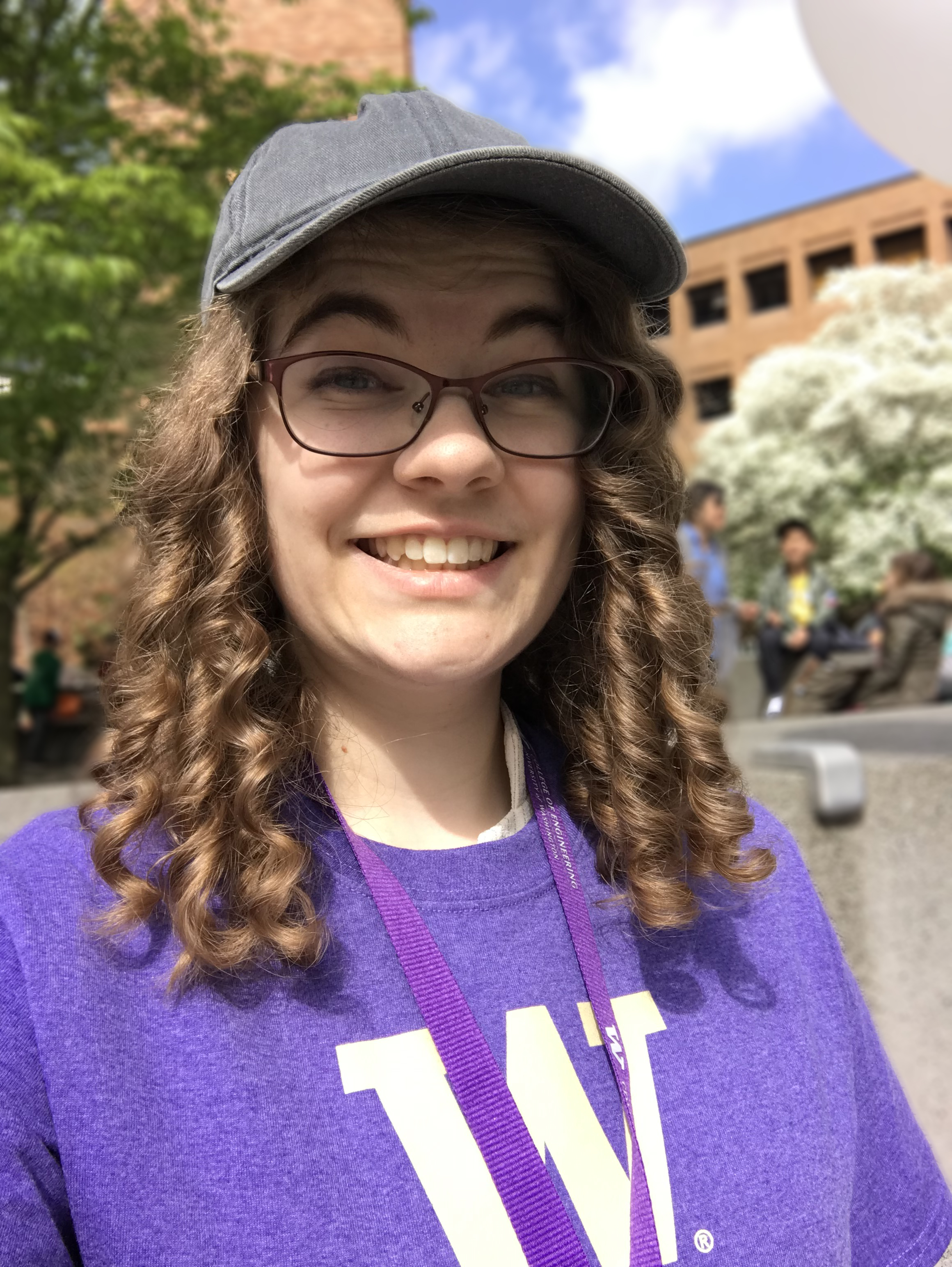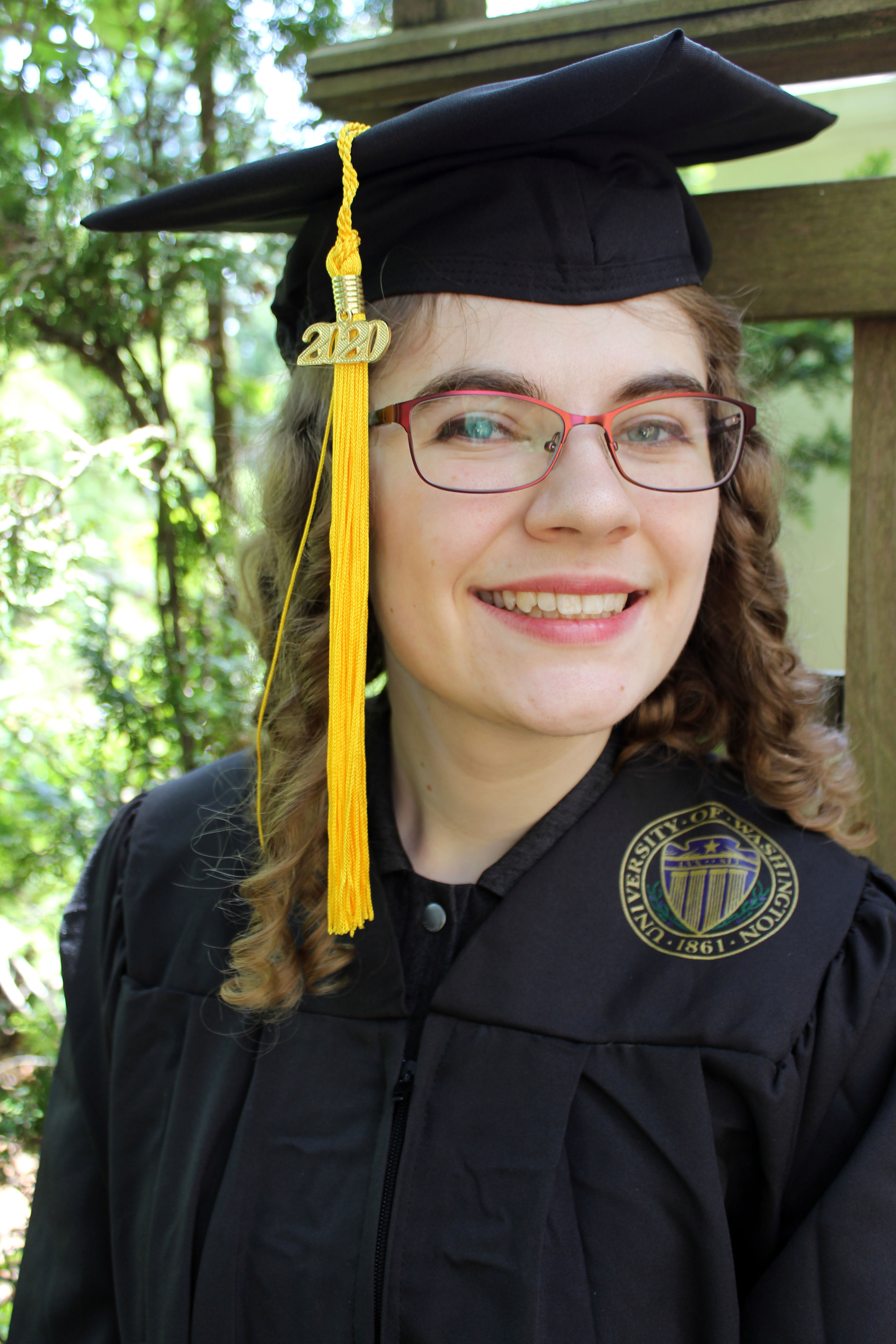My name is Joely Nelson. I’m currently a Data Scientist at the Pacific Northwest National Laboratory in Seattle. I graduated from the University of Washington in March 2022 with my MS in computer science & engineering. My thesis was on data driven approaches to CRISPR engineering where I used machine learning and data based analytics to learn more about the rules for activating gene expression. In the summer of 2021, I worked as an R&D data science intern at the Sandia National Laboratories in Livermore, where I researched data analytics as a means of expediting software behavior analysis using natural language processing and clustering methods.
I have a strong background in Python, data analysis, and machine learning methods. I’m especially interested in data science applications to computer security, biology, and environmental science.
Bachelor’s of Science in Computer Science

I was first drawn to computer science by the intersection between mathematical theory and real-world problem solving. No aspect of that intersection has enthralled me more than data science. I decided to pursue computer science to get a strong background in computing and algorithms with the hope of using these skills to solve real world problems. I attended the University of Washington to get my Bachelor’s of Science in Computer Science with a minor in Mathematics and an emphasis in data science and machine learning.
TA
I started work as a TA during my junior year of undergrad and have continued throughout grad school. I work as a TA for non-major Python classes where I try to create a welcoming environment to foster a love of computer science in my students, many of whom had never coded before. I remember how daunting coding for the first time can be, so I want my students to feel as comfortable as possible. I find teaching extremely rewarding and hope that I can continue to teach and mentor in the future.
The classes I have taught for are Intro to Data Science (CSE 180) in the Spring of 2021; Data Programming (CSE 160) during Winter 2019, Autumn 2020, Winter 2021, Autumn 2021, and Winter 2022; and Intermediate Data Programming (CSE 163) during Spring 2019. I have taught and created material to help students effectively learn fundamental data science topics including scientific Python packages, machine learning concepts, and data ethics. I collaborated with the course staff to document and create content for an entirely new Python data science course, the size of which was doubled from 80 to 160 after a successful first quarter. I mentored 3 undergraduate TAs by collaborative planning and co-leading quiz sections.
Synthetic Biology Research
From 2019 to 2022, I have applied my expertise in data science to computational synthetic biology research in the Carothers Research Group in the Molecular Engineering & Sciences Institute at the University of Washington. My work focuses on utilizing machine learning and data analytics to learn more about the rules of CRISPR-based systems for activating gene expression. Starting from experimental data, I designed, developed, and trained custom machine learning models to describe chemical reaction networks of elemental CRISPR systems. I worked with a team to clean, explore, and analyze a large E. coli dataset, to select 25 genes from among over 2,000 candidates, making further experimentation possible. The rules we uncover from these data-driven analyses will allow researchers to select highly effective CRISPR target sites for engineering biological systems.
I wrote my thesis on the work I did in the Carothers Lab. See this post for my thesis, presentation, and slides.
Master’s Degree
 I graduated with my Bachelor’s in Computer Science from the University of Washington in June of 2020. I realized that my lack of a higher degree could be an issue when looking for jobs as a data scientist, many of which require at least a Master’s degree. I applied to the BS/MS program at the University of Washington to get more experience in research and teaching, and gain more skills specific to the field of data science. Much to my delight I was accepted!
I graduated with my Bachelor’s in Computer Science from the University of Washington in June of 2020. I realized that my lack of a higher degree could be an issue when looking for jobs as a data scientist, many of which require at least a Master’s degree. I applied to the BS/MS program at the University of Washington to get more experience in research and teaching, and gain more skills specific to the field of data science. Much to my delight I was accepted!
I began my master’s degree in the Fall of 2020 and graduated with a Master’s of Science in Computer Science and Engineering in March 2022.
I continued my work at the Carothers Research Group and as a TA as a graduate student.
Internship at Sandia National Laboratories
In the summer of 2021 I had the privilege of working as an R&D intern focused on data science at Sandia’s Center for Cyber Defenders. I joined a team engaged in vulnerability assessment of software. For my summer project, I was asked to research the efficacy of data analytics as a means of expediting software behavior analysis. With minimal direction, I worked with a small team to define, implement, and evaluate multiple techniques. Early results showed that techniques I developed successfully differentiated process and network traces collected under varying conditions, and my subsequent research paved the way for applying these techniques to more complex applications and environments.
See this post for a presentation on my internship work.
Pacific Northwest National Laboratory
In my role as a data scientist at Pacific Northwest National Laboratory, I have led elements of multiple applied data science projects, demonstrating my aptitude for research, implementation, and optimization. Notable achievements include: (1) spearheading the development of an open-source language translator package for a medical intelligence dashboard (2) designing and implementing a machine learning model to identify relevant articles with high accuracy rates (3) revamping and optimizing the codebase for a cybersecurity project focused on modeling cyber risks in agricultural systems, resulting in enhanced clarity, efficiency, and visualization capabilities.